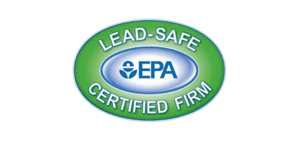Water damage is a homeowner’s worst nightmare. Not only can it be costly to repair, but it can also be a health hazard. Fortunately, there are steps you can take to prevent water damage from occurring in the first place.
In this section, we will provide you with essential water damage prevention tips that will help safeguard your home from costly repairs. By following these expert tips, you can minimize the risk of water damage and protect your property.
Key Takeaways:
- Regularly check for and address leaks promptly.
- Maintain gutters and downspouts to ensure proper water flow.
- Consider installing a sump pump to prevent basement flooding.
- Waterproof your basement to prevent water from seeping through.
- Regularly inspect and maintain your roof to prevent roof leaks.
Identify and Fix Leaks Promptly
Water leaks can cause serious damage to your home if left unaddressed. To prevent water damage, it’s essential to identify leaks early and fix them promptly. Here are some tips to help you prevent leaks:
- Regularly check your pipes, faucets, and plumbing system for any signs of leaks.
- If you notice any drips or leaks, address them promptly.
- Consider installing water alarms, which can alert you to leaks before they cause significant damage.
Fixing leaks promptly can save you from costly repairs and prevent water damage to your home. Remember, prevention is always better than cure.
Don’t let a small leak turn into a big problem. Identify and fix leaks promptly to prevent water damage to your home.
Maintain Gutters and Downspouts
Proper maintenance of gutters and downspouts is crucial for preventing water damage to your home. By ensuring that these components are in good condition, you can prevent water from seeping into your house and causing costly damage. Here are some essential tips for gutter and downspout maintenance:
| Gutter Maintenance | Downspout Maintenance |
|---|---|
| Regularly clean your gutters to remove debris such as leaves, twigs, and dirt. Clogged gutters can cause water to overflow and seep into your house. | Make sure that downspouts are directing water away from your home’s foundation. This will prevent water from pooling and seeping into your basement or crawl space. |
| Check for any leaks or damage to your gutters. Replace any damaged sections promptly to prevent water from seeping through. | Ensure that downspouts are securely fastened and attached to your home’s exterior. Loose or disconnected downspouts can cause water to accumulate near your foundation. |
| Consider installing gutter guards to prevent debris from accumulating in your gutters and downspouts. | Regularly check that downspouts are clear of any obstructions such as leaves or debris that may cause water to overflow. |
Remember that proper gutter and downspout maintenance can help prevent water damage to your home. By following these essential tips, you can safeguard your home and avoid costly repairs.
Install a Sump Pump to Prevent Basement Flooding
If you live in an area prone to heavy rainfall, installing a sump pump can be an effective solution to prevent basement flooding. A sump pump works by removing water that accumulates in the sump pit, which is typically located in the basement. This helps keep your basement dry, preventing water damage to your property.
While you may be tempted to install a sump pump yourself, it’s best to consult with a professional to ensure proper installation. A professional can help determine the right size and type of sump pump for your home and install it correctly. Poor installation can lead to ineffective results and costly repairs.
When considering a sump pump, it’s important to choose a model with a battery backup. This ensures the sump pump continues to work during power outages, which often occur during severe storms. Additionally, make sure to test your sump pump regularly to ensure it’s in good working condition.
| Type of Sump Pump | Advantages | Disadvantages |
|---|---|---|
| Submersible Sump Pump | Fits in the sump pit | Expensive to repair if damaged |
| Pedestal Sump Pump | Easy to access for maintenance | Takes up more space |
Investing in a sump pump is a smart move to prevent basement flooding and water damage to your home. Consult with a professional for proper installation and maintenance to ensure your sump pump is always ready to protect your property.
Waterproof Your Basement to Prevent Costly Water Damage
Basement waterproofing is a crucial step in protecting your home from potential water damage. High humidity and heavy rainfall can cause water to seep through your foundation, leading to costly repairs. By waterproofing your basement, you can safeguard your foundation and the rest of your home.
| Method | Pros | Cons |
|---|---|---|
| Interior Sealant | – Inexpensive – Easy to apply |
– Only effective for minor leaks – Can trap moisture inside walls |
| Exterior Waterproofing | – Provides complete protection – Can increase home value |
– Costly – Requires excavation of foundation |
| Vapor Barrier | – Reduces moisture – Inexpensive option |
– Not effective against standing water – Requires professional installation |
There are several methods for waterproofing your basement, each with its own pros and cons. Consider the severity of your water issues and your budget before selecting a method. Interior sealants are an inexpensive and quick fix for minor leaks, but they can trap moisture inside walls. Exterior waterproofing provides complete protection but can be costly and may require excavation of your foundation. A vapor barrier is a good low-cost option for reducing moisture, but it won’t be effective against standing water and requires professional installation.
Another way to protect your foundation is by directing water away from your home. Make sure your downspouts are angled away from your foundation, and consider installing French drains or other drainage systems to move water away from your foundation and basement.
Don’t wait until it’s too late to waterproof your basement. Protect your home from water damage and ensure your foundation stays strong. Consider consulting a professional for guidance on the best method for your home and budget.
Regularly Inspect and Maintain Your Roof
Your roof is one of the most important components of your home when it comes to preventing water damage. It acts as the first line of defense against rain, snow, and other elements that can cause leaks and water damage. That’s why it’s crucial to regularly inspect and maintain your roof to ensure its continued effectiveness.
Regular roof inspections can help you identify any signs of damage, such as missing or damaged shingles, cracks in the roof, or areas where water has pooled. By addressing these issues promptly, you can prevent leaks and more extensive damage to your home.
When inspecting your roof, pay attention to the following:
- Missing or damaged shingles
- Clogged gutters or downspouts
- Areas where water has pooled
- Cracks or holes in the roof
If you’re not comfortable inspecting your roof yourself, consider hiring a professional roofing contractor to perform the inspection for you. They have the expertise and tools necessary to identify any issues and provide you with recommendations for repair or maintenance.
In addition to regular inspections, it’s essential to maintain your roof by performing routine maintenance tasks. This includes keeping your gutters clear of debris, trimming back any overhanging tree limbs, and removing any moss or algae that has accumulated on your roof.
By making roof maintenance a priority, you can prevent roof leaks and ensure that your home is protected from water damage. Remember, a well-maintained roof is essential for protecting your home and your family from the elements.
Conclusion
Protecting your home from water damage is essential to ensure its longevity and to avoid costly repairs. By implementing these expert tips, you can safeguard your home and enjoy peace of mind. Remember to regularly check for leaks and address them promptly to prevent further damage. Proper maintenance of your gutters, downspouts, and roof is crucial to prevent water from seeping into your home.
Consider installing a sump pump and waterproofing your basement to prevent basement flooding. Waterproofing your foundation can also protect your home from water damage in areas prone to high humidity or heavy rainfall. By taking these proactive steps, you can minimize the risk of water damage and ensure your home stays in good condition for years to come.
FAQ
What are some essential water damage prevention tips for my home?
Some essential water damage prevention tips for your home include promptly identifying and fixing leaks, maintaining gutters and downspouts, installing a sump pump, waterproofing your basement, and regularly inspecting and maintaining your roof.
How can I identify and fix leaks promptly?
Regularly check your plumbing system, faucets, and pipes for any signs of leaks. If you notice any drips or leaks, address them promptly to prevent further damage. Early leak detection and repair can save you from extensive water damage.
Why is maintaining gutters and downspouts important for water damage prevention?
Proper maintenance of gutters and downspouts is crucial for water damage prevention. Clean your gutters regularly to remove debris and ensure smooth water flow. Check that downspouts are directed away from your foundation to prevent water from pooling near your home. Maintaining these components will help prevent water from seeping into your house.
How can installing a sump pump help prevent basement flooding?
Installing a sump pump can be a valuable investment to prevent basement flooding. A sump pump helps remove excess water from your basement, keeping it dry and preventing water damage. Consider consulting a professional for proper installation and to ensure your sump pump is in good working condition.
What steps can I take to waterproof my basement?
Basement waterproofing is essential in areas prone to high humidity or heavy rainfall. Apply appropriate sealants on foundation walls and floors to prevent water from seeping through. Consider installing a vapor barrier and insulating pipes to further protect your basement from water damage.
How often should I inspect and maintain my roof?
It is recommended to regularly inspect your roof for any signs of damage, such as missing shingles or cracks. Address any issues promptly and keep your roof well-maintained. Proper roof maintenance will help prevent roof leaks and water damage to your home.
What are the benefits of implementing these water damage prevention tips?
By implementing these essential water damage prevention tips, you can protect your home from costly repairs and potential damage. Promptly addressing leaks or issues, maintaining gutters and downspouts, considering the installation of a sump pump, waterproofing your basement, and regularly inspecting and maintaining your roof will help safeguard your home and provide you with peace of mind.

















